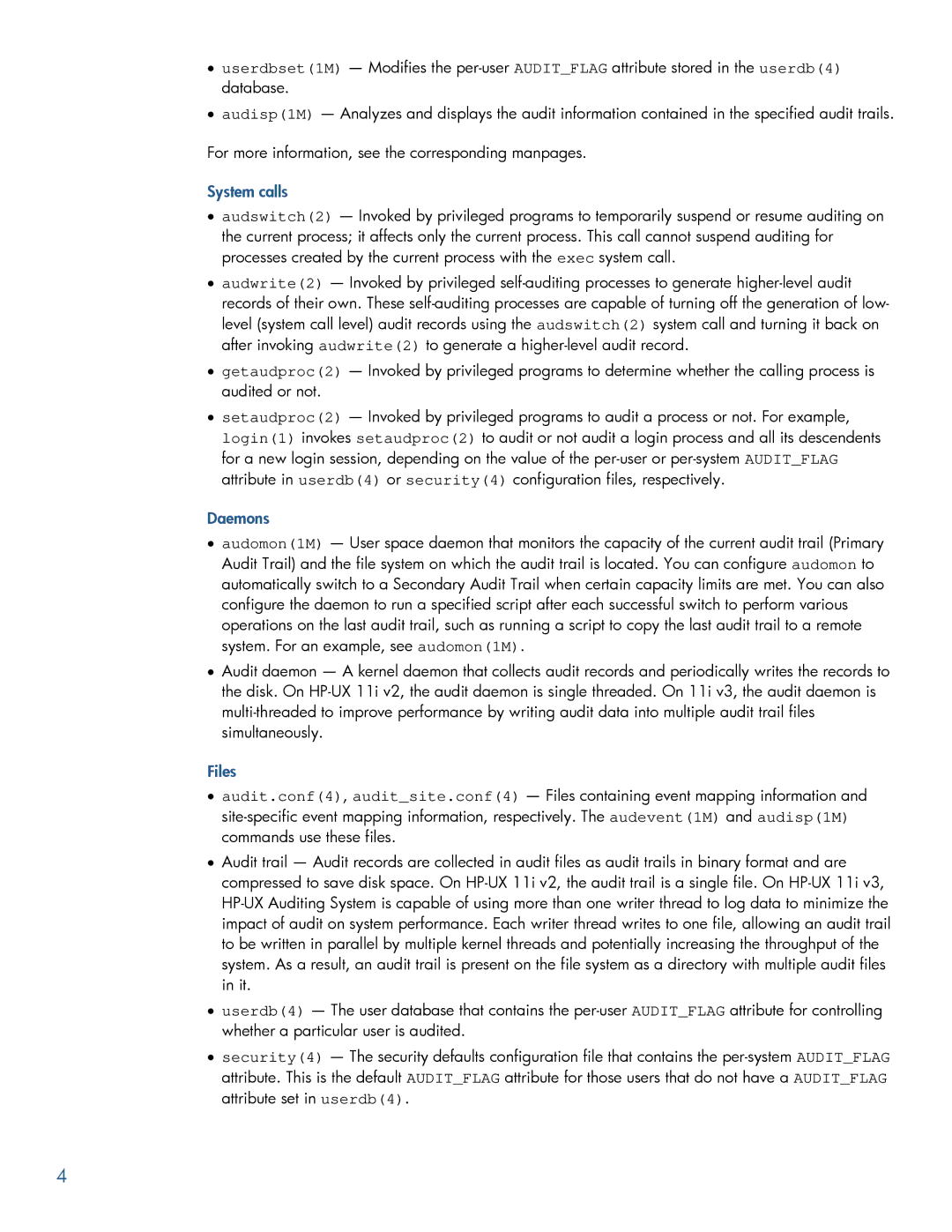•userdbset(1M) — Modifies the
•audisp(1M) — Analyzes and displays the audit information contained in the specified audit trails.
For more information, see the corresponding manpages.
System calls
•audswitch(2) — Invoked by privileged programs to temporarily suspend or resume auditing on the current process; it affects only the current process. This call cannot suspend auditing for processes created by the current process with the exec system call.
•audwrite(2) — Invoked by privileged
•getaudproc(2) — Invoked by privileged programs to determine whether the calling process is audited or not.
•setaudproc(2) — Invoked by privileged programs to audit a process or not. For example, login(1) invokes setaudproc(2) to audit or not audit a login process and all its descendents for a new login session, depending on the value of the
Daemons
•audomon(1M) — User space daemon that monitors the capacity of the current audit trail (Primary Audit Trail) and the file system on which the audit trail is located. You can configure audomon to automatically switch to a Secondary Audit Trail when certain capacity limits are met. You can also configure the daemon to run a specified script after each successful switch to perform various operations on the last audit trail, such as running a script to copy the last audit trail to a remote system. For an example, see audomon(1M).
•Audit daemon — A kernel daemon that collects audit records and periodically writes the records to the disk. On
Files
•audit.conf(4), audit_site.conf(4) — Files containing event mapping information and
•Audit trail — Audit records are collected in audit files as audit trails in binary format and are compressed to save disk space. On
•userdb(4) — The user database that contains the
•security(4) — The security defaults configuration file that contains the
4
